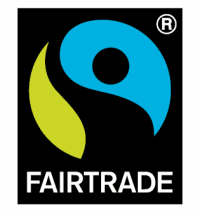Flocert – Firtrade Certification

At Panarese Group, we pay a lot of attention to fair trade. Our focus is to obtain as many certifications as possible in order to offer all the guarantees that can certify the great quality of our products. And that’s why we’ve added another trophy to our certification board: Faitrade
For us Fairtrade means choosing to have a positive impact on the lives of millions of small farmers and workers in developing countries, to source our choices of responsibility from sustainable supply chains and opportunities for our customers.
Consumers are increasingly attentive to eco-sustainability issues and always expect greater commitment and transparency from companies such as Panarese Group, which always implement increasingly ethical and sustainable business practices. We believe that Fairtrade is the ideal partner to accompany us on this journey with the common goal of eco-sustainability.
FAIRTRADE
Fairtrade: Fair trade born in 2003 with headquarters in Bonn, Germany. It carries out its activity in over 70 countries located in Europe, Africa, Asia and Latin America. To ensure the credibility of the Fair Trade certification mark, FLO-CERT operates a consistent, independent and transparent worldwide certification system that follows the requirements of ISO 65, the international quality standard for certification bodies.
Fairtrade is the fair trade certification mark that distinguishes products made without exploiting workers and the environment. It is an international organization that works every single day to improve the conditions of agricultural producers in developing countries. It performs this task very well through precise standards that allow farmers and workers to be able to count on a more stable income and to look to their future with confidence.
Fairtrade and minum price
It is the price that farmers receive for their produce, which is never below the market price threshold and exempt from stock market speculation. The sum is established by Fairtrade with the same agricultural producers in order to cover the costs necessary for sustainable production. Obviously, if the market price were to be higher than the Fairtrade minimum price, farmers would be paid the market price.
The ability to participate in all decision-making processes is the pride of Fairtrade certification which makes it unique among all certification schemes.
The Fairtrade Award
It is a sum of money received in addition to the minimum price. Once it has been given, it will be up to the farmers and workers themselves to decide how to spend it. They generally choose from the following options:
– improve production techniques;
– build roads and infrastructures;
– guarantee an education for their children;
– build medical clinics;
– wells for drinking water for the benefit of their communities.
FLOCERT
Flocert is the inspection and certification body for Fairtrade labeled products. In order to ensure the credibility of the Fair Trade certification mark, FLO-CERT operates in a coherent, independent and transparent global certification system that follows the requirements of ISO 65, the international quality standard for certification bodies.
Founded in 2003, FLOCERT is a leading certifier offering verification services to fair trade organizations globally and has partnered with all organizations that are committed to operating sustainably to increase equity in global trade.
It has extensive experience in analyzing global supply chains built on a long history in fair trade, making it a one stop shop for guarantee services.
FloCert non only label
The statistics don’t lie: consumers around the world are increasingly choosing fair trade products. FloCert is capable of
– verify the company’s performance against multiple ethical standards, including Fairtrade;
– provide insurance solutions tailored to the needs of the company
– guarantee the integrity of the product;
– keep track of payments;
– verify sustainable investments.
FloCert’s worldwide network is made up of over 1.6 million smallholder farmers and workers in developing and emerging countries, as well as many merchants and brands. Its headquarters in Bonn, Germany, allows for direct access to all European markets. Finally, its regional offices located in Costa Rica, India, South Africa and the United States, which allow it to have both a global reach and a local presence.





